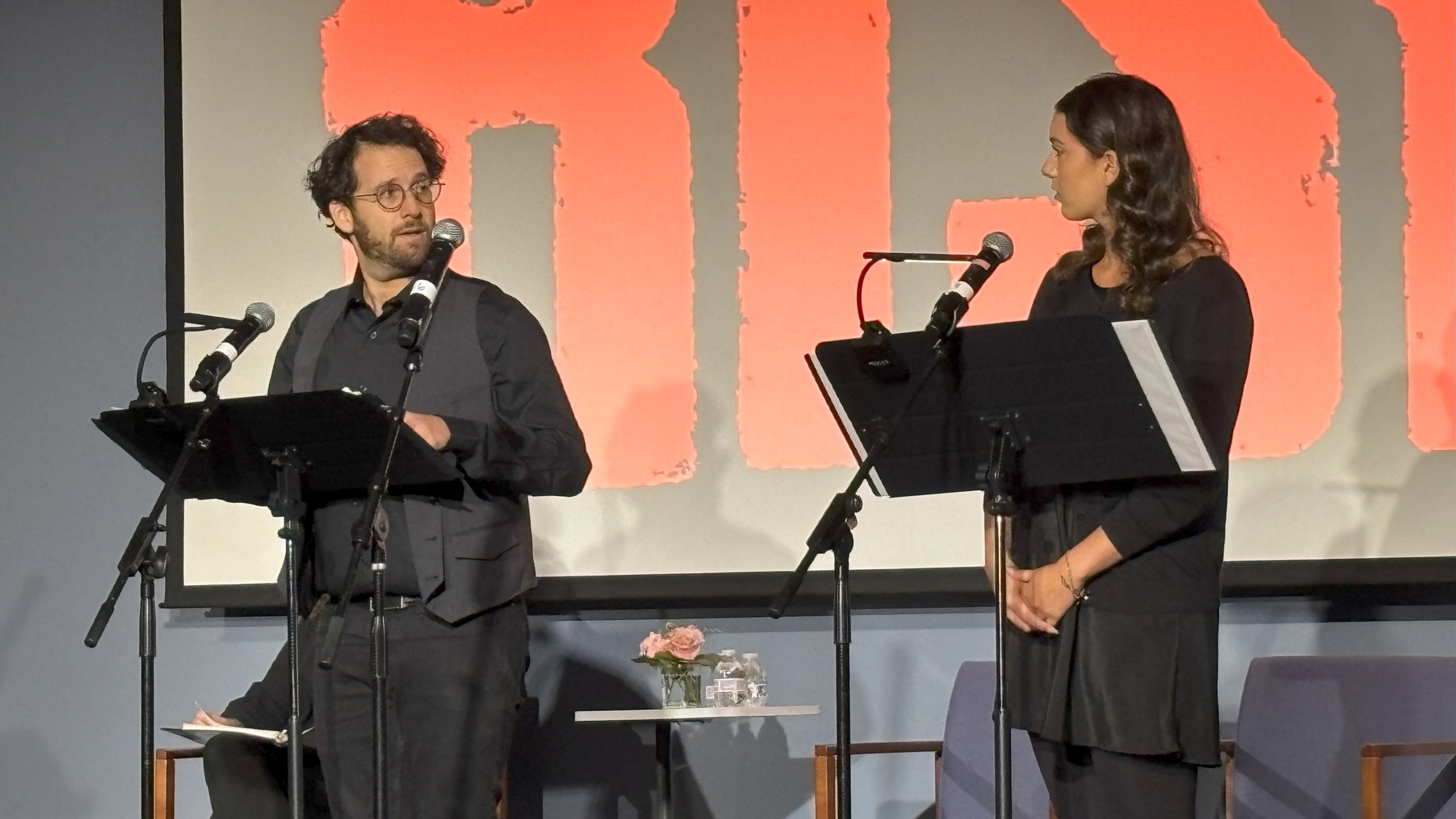When History Rhymes, Rise! An Untold Story Powers a Rock Musical About Jewish Resistance
Cast and creators say audiences are responding to a female-driven narrative even as some mainstream backers shy away from staging the show
“History doesn’t repeat itself, but it often rhymes,” says Joshua Daniel Hershfield, quoting a line often attributed to Mark Twain. He points to hallmark signs of societal radicalization in the years leading up to World War II, drawing parallels to the run-up to 2025.
“You can hear something from a campus protest and it sounds like something from the Soviet Union in the 1950s,” Hershfield adds, speaking to The Media Line following his salon performance of RISE, the Rock Musical at the Zekelman Holocaust Center in Farmington Hills, Michigan, a suburb of Detroit. “It’s the same vocabulary.”
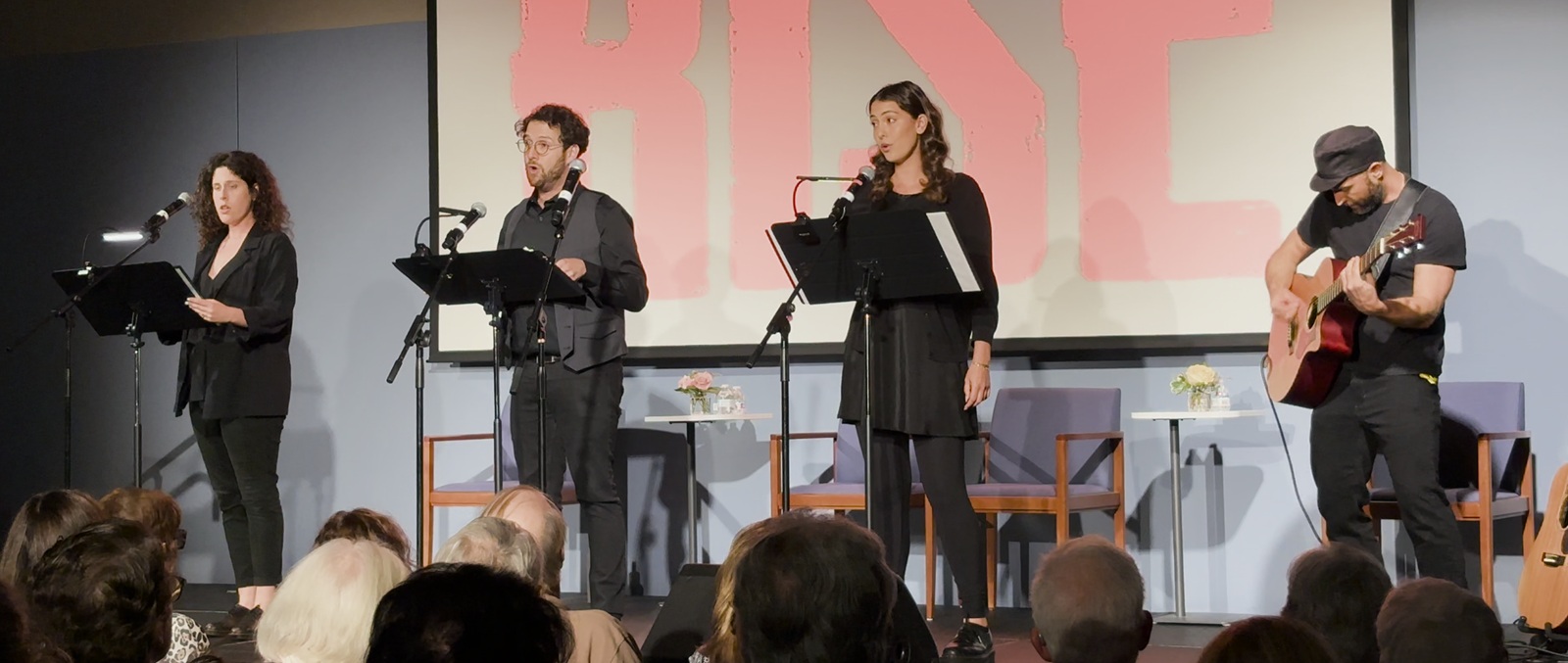
Salon performance of RISE, at the Zekelman Holocaust Center in Farmington Hills, Michigan, Sept. 14, 2025. (Aaron Poris/The Media Line)
But perhaps nowhere is the “rhyme” clearer than when Jew-centric Holocaust stories like RISE are today deemed “too political,” and struggle to find mainstream industry support.
Most places other than Jewish spaces just won’t touch it [the show] with a 10-foot pole at this point
“Most places other than Jewish spaces just won’t touch it [the show] with a 10-foot pole at this point,” continues Hershfield, the award-winning writer-lyricist, composer, and guitarist behind RISE. Without naming names, he says one potential sponsor even suggested he “decentralize” the Jewish themes—a tall order when the story follows Jews who concealed their identity as part of rebel activities against the Nazis, with songs on the setlist including satirical numbers like “Blame the Jews.”
Support has lagged despite sellouts with little to no marketing at nearly every venue hosting RISE. “It’s an incredible thing to be a part of a story that just draws people,” says RISE actor Mark Jacobson, who plays “David,” a father figure to Jewish ghetto children and love interest of “Sarah.” “It’s always kind of a hustle and a sell to get people to come and see theater and to get the story you’re telling. But there’s something at the core of RISE that for some reason invites interest, excitement, and hope; even under the broader circumstances of tragedy and pain.”
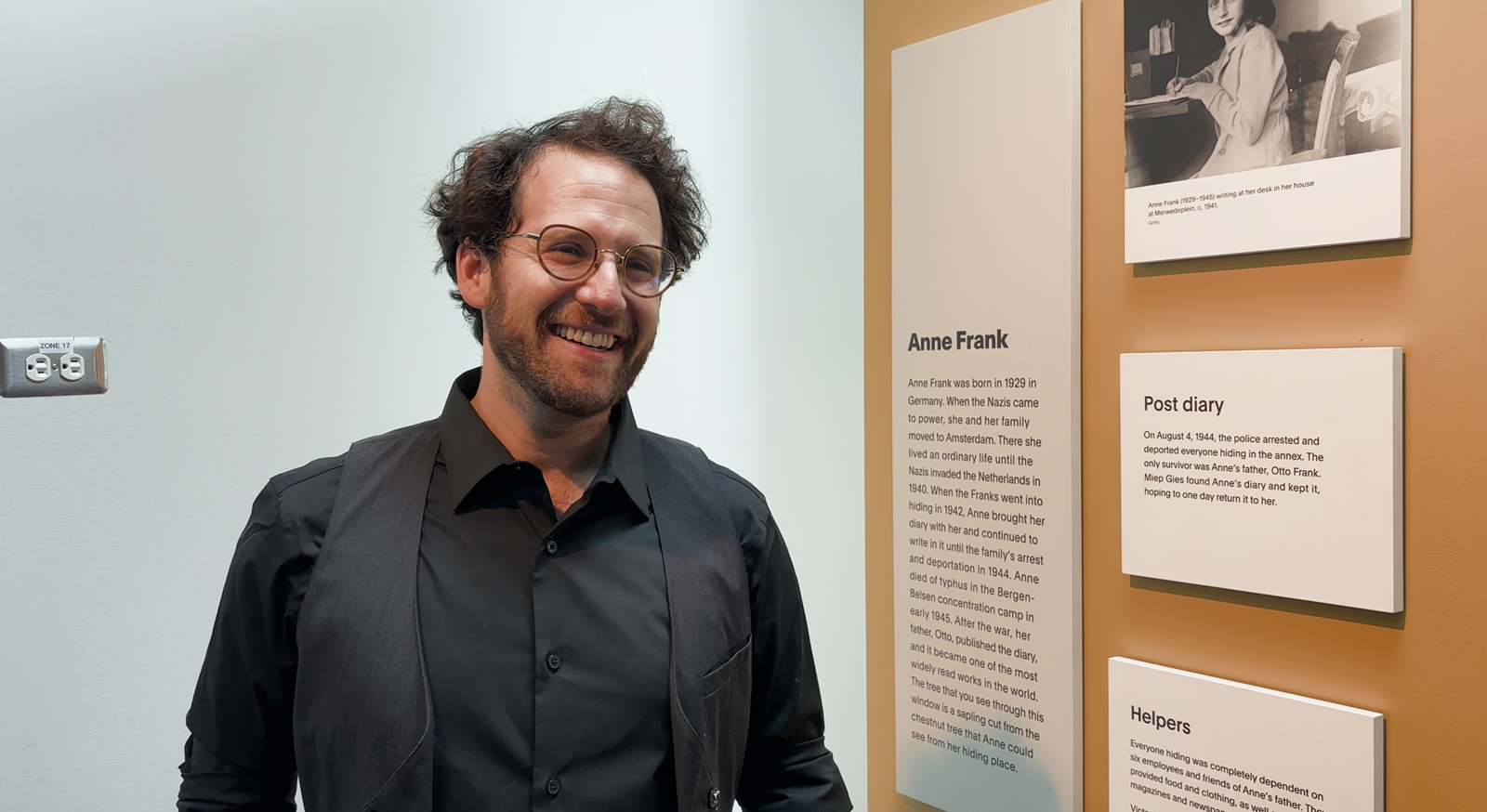
Actor Mark Jacobson, Sept. 14, 2025. (Aaron Poris/The Media Line)
A rock musical about the Holocaust is not something anyone has heard of before at all
Standing by an exhibit of the real-life inspiration for her character “Sarah,” the rebel courier, actor and University of Southern California student Keira Weiss tells The Media Line that people’s ears perk up as soon as they hear the premise. “A rock musical about the Holocaust is not something anyone has heard of before at all. So it’s definitely something that people are interested in—especially now.” She says she has seen strong interest on campus and hopes to bring the performance home.
Give the gift of hope
We practice what we preach:
accurate, fearless journalism. But we can't do it alone.
- On the ground in Gaza, Syria, Israel, Egypt, Pakistan, and more
- Our program trained more than 100 journalists
- Calling out fake news and reporting real facts
- On the ground in Gaza, Syria, Israel, Egypt, Pakistan, and more
- Our program trained more than 100 journalists
- Calling out fake news and reporting real facts
Join us.
Support The Media Line. Save democracy.


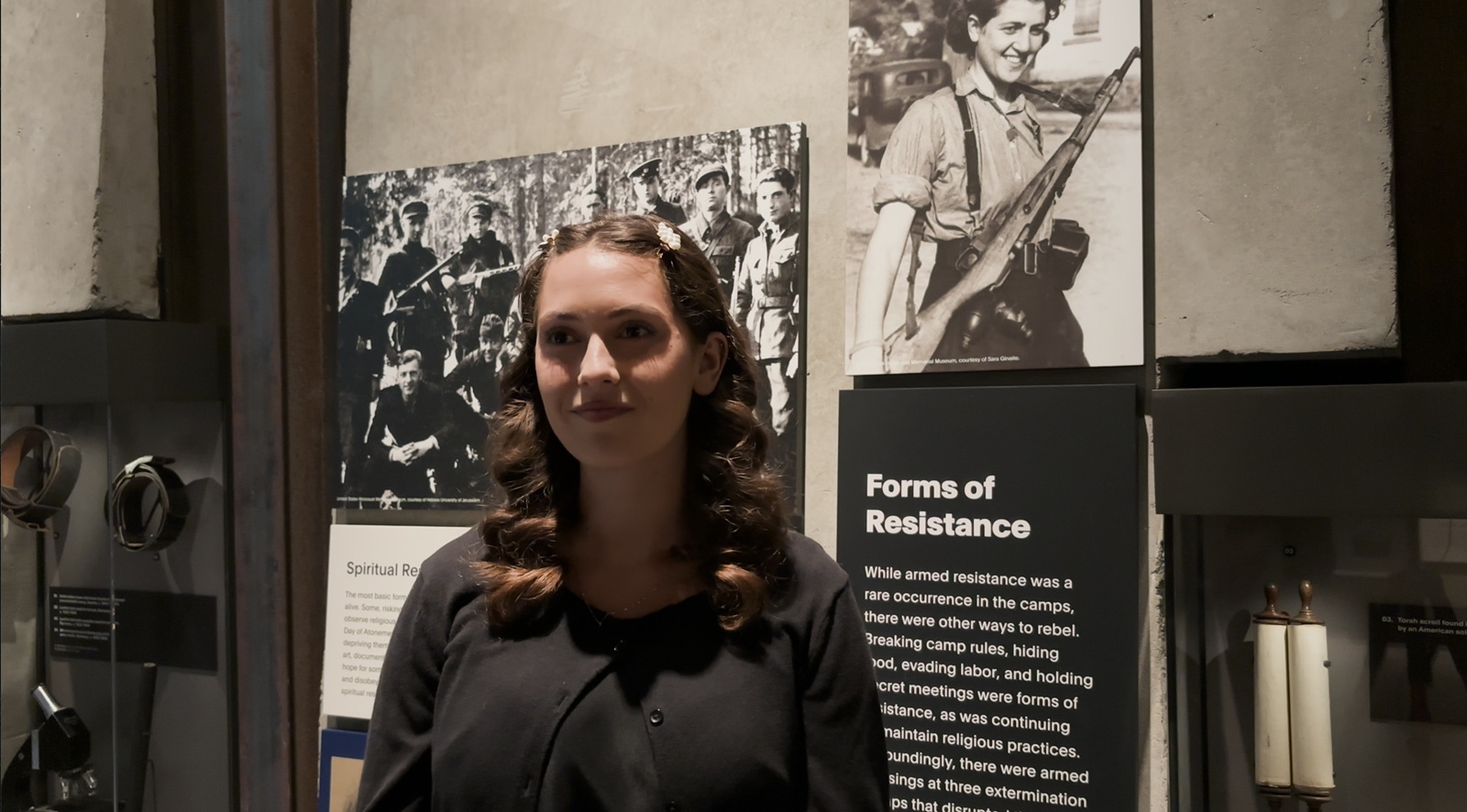
Actor Keira Weiss, Sept. 14, 2025. (Aaron Poris/The Media Line)
Hershfield has also turned to creative alternatives to keep RISE going—after a quasi-hiatus to volunteer as an EMT in Israel following Hamas’ October 7, 2023 attack. There was even a performance in a Tel Aviv bomb shelter.
“We’ve recently become our own nonprofit, and we’re producing the show ourselves,” Hershfield says. He and his team are also in discussions with the USC Shoah Foundation in Los Angeles and other organizations that might support or host the program.
The irony isn’t lost on anyone, least of all Hershfield: a story about Jews resisting Nazi propaganda—during a time when they were collectively boycotted for who they were—can now be labeled “too political” because of an unrelated Israel–Hamas war eight decades later. It’s a bitter twist—an account of defiance against the Nazi war machine sidelined not on its merits but due to today’s conflict. Few feel that contradiction more acutely than Hershfield.
If you just have your eyes open now you can manifest the history of antisemitism. It’s the same tropes.
“When I got a degree in Holocaust studies, I knew that it was relevant to the modern day, especially studying the history of antisemitism as one of the things I did for my degree. … But I didn’t think I was just going to see [these things]. If you just have your eyes open now you can manifest the history of antisemitism. It’s the same tropes. The same kinds of righteous fervor. To simplify, we [Jews] used to be hated for our religion. It was considered evil, corrupt and had to be eradicated. Then we were hated for our race; it was considered evil, corrupt and had to be eradicated. And now we’re hated for our state; which is considered evil, corrupt and needs to be eradicated. And we just face this pattern over and over again. It’s even in Jewish tradition to talk about that. But still, to actually see it happening is disorienting.”
“In every generation they rise against us to annihilate us, and the Holy One, blessed be He, saves us from their hand,” reads the Vehi She’amda passage in the Passover Haggadah.
There are two lessons, say the cast and crew of RISE. The first warns; the second celebrates resilience, strength, determination, female empowerment, and survival. That second message is what appears to resonate with audiences.
RISE: A Rock Musical follows the true story of the kashariyot—Jewish women couriers, often teenagers—who risked their lives undercover in enemy territory to smuggle food, medicine, messages, and even weapons between ghettos, forced-labor and death camps, and resistance cells. They were instrumental in saving lives and hampering the Nazi war machine. Yet most people have never heard of them.
Actor Paige Berkovitz plays “Ruth,” a Jewish mother and widow in the ghetto who would be a courier herself were it not for her “Jewish” appearance. Speaking during the Q&A portion of the event, Berkovitz thanks both Hershfield and the Zekelman Holocaust Center for featuring the story of the kashariyot. “I find it amazing that it took me this long to realize how important this story is,” she adds.
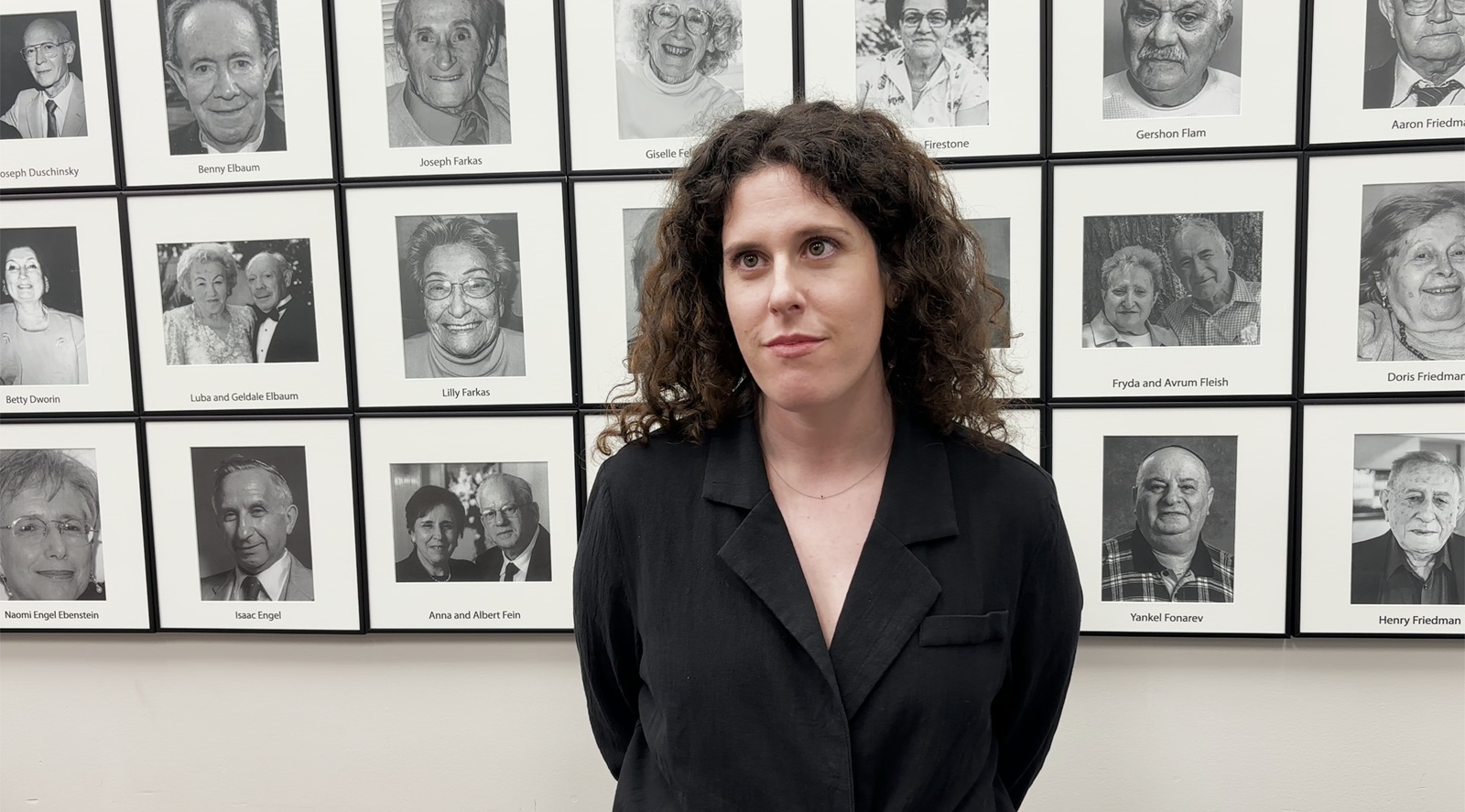
Actor Paige Berkovitz, Sept. 14, 2025. (Aaron Poris/The Media Line)
Later, standing by a gallery of Holocaust survivors who came to Michigan after the war, Berkovitz tells The Media Line that her main takeaway from each performance is “the power of women, and how important it is to tell female empowerment stories … and to know that women are strong, resilient, and capable of so much more than we know.”
Others feel the same. Weiss laments to The Media Line that “in our history books growing up, we got five minutes of Holocaust studies and this was never a story I learned about. And the fact that it’s young Jewish women—women my age—doing these incredible and heroic acts. … I knew it was something I wanted to learn more about and bring life to.”
Even Hershfield admits he truly learned about the kashariyot only after a professor’s passing remark while he pursued a master’s degree in Holocaust studies at the University of Haifa. From there, the Berkeley-trained career musician dove into the couriers’ histories and brought them to the stage.
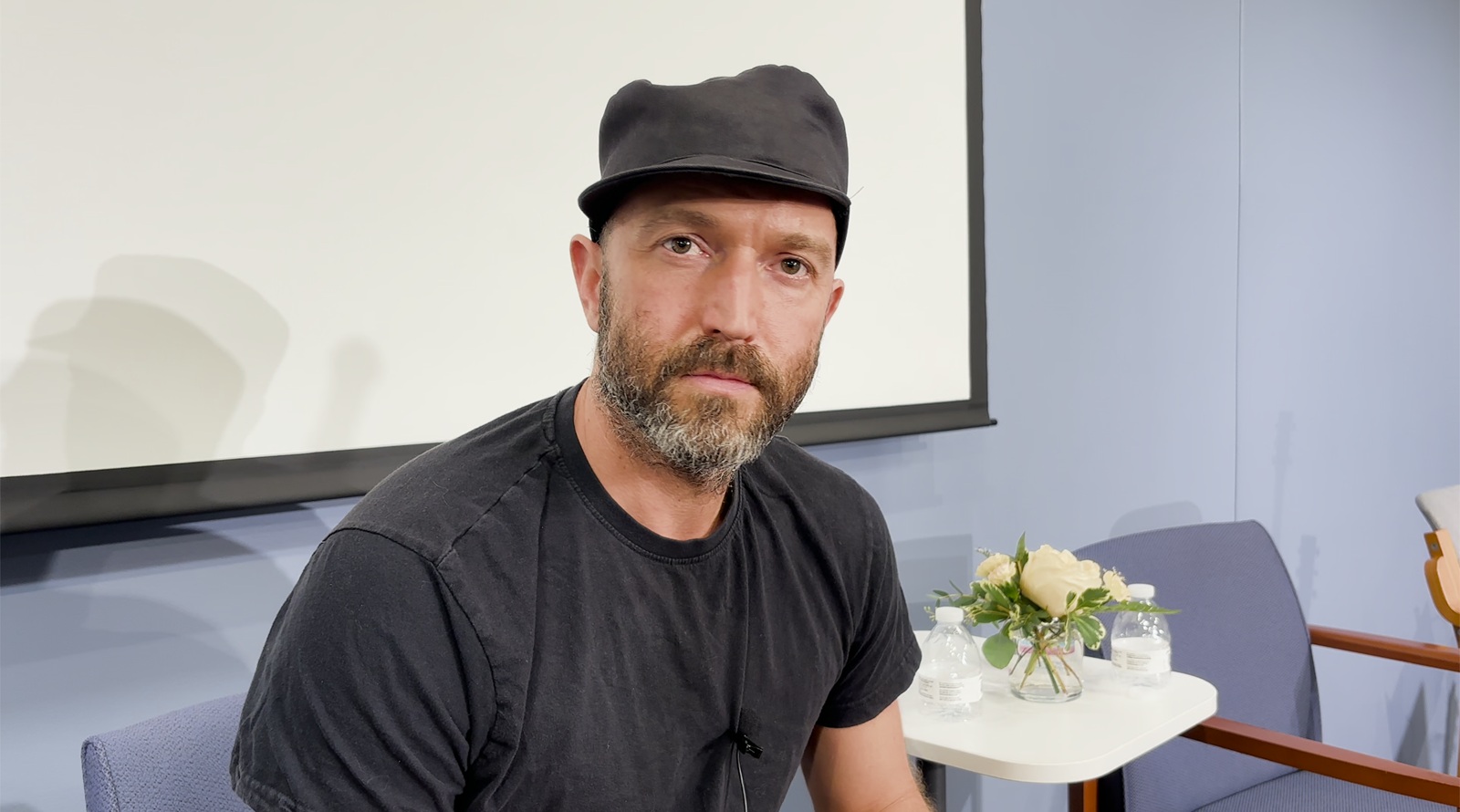
Writer, lyricist, composer, and guitarist Joshua Daniel Hershfield, Sept. 14, 2025. (Aaron Poris/The Media Line)
“Think about how much courage it would’ve taken to do something like that,” he tells The Media Line. “To be a Jewish girl in Nazi-occupied Europe and think—’I know, … I’m going to pretend I’m not Jewish, travel through Nazi territory and checkpoints, travel on trains with non-Jews—any one of these things goes wrong and I’m dead—and I’m going to carry bread and food and messages and medicine. Then I’m going to go back into the ghettos before going back out and doing it all over again.’”
Their courage, Hershfield adds, is even more striking when one considers they could have tried to use their “non-Jewish” looks and false papers to save themselves.
Asked who inspired him most, Hershfield points to Gusta Davidson Draenger—“Justyna”—a Kraków courier who, after arrest by the Gestapo, wrote a clandestine diary on smuggled scraps of toilet paper that guided comrades waiting beyond the prison walls. The blood-stained pages survived the war. Draenger did not.
Future performances of RISE are in planning. Learn more at RiseTheRockMusical.com/.
